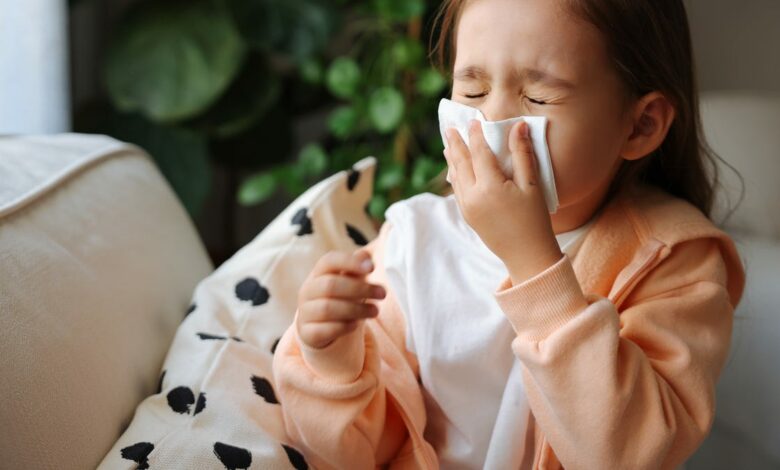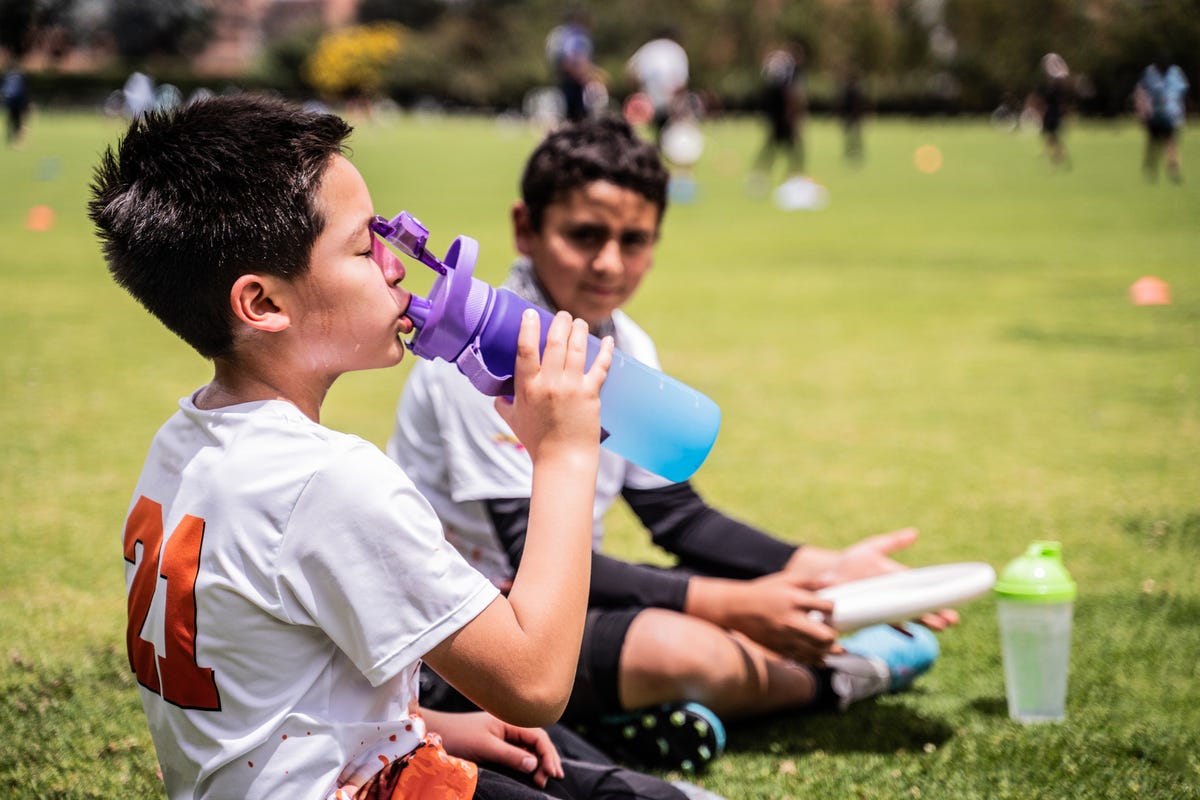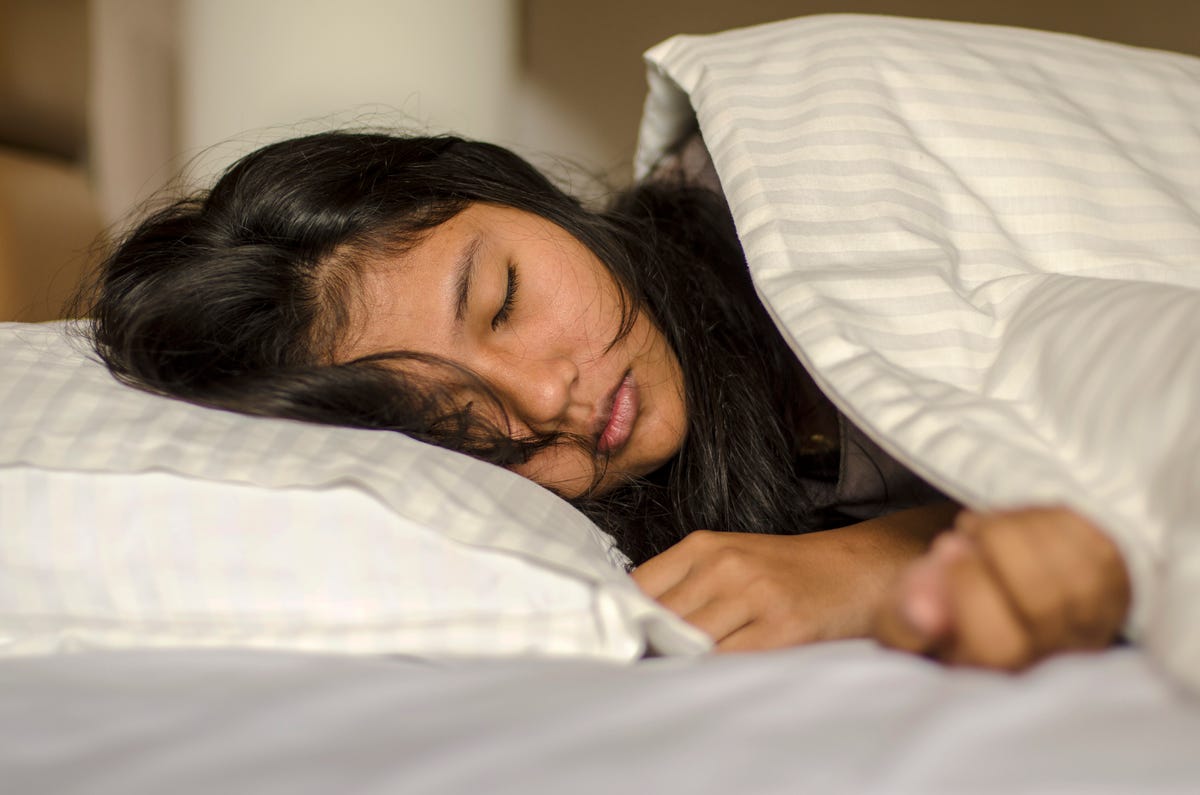5 Ways to Keep Your Kids from Getting Sick at the Start of the School Year




It’s no secret that back-to-school season can lead to cold and flu season. According to the U.S. Centers for Disease Control and Prevention, in 2022, nearly 6% of the students ages 5 to 17 had chronic absenteeism due to illness, injury, or disability. Even children who do not have chronic absenteeism may miss a day or two because they catch something in class.
Dr. Markyia NicholsPracticing physician and chief medical officer at Ciba Health, says there are more than 200 different cold viruses, and they are constantly mutating. It can take years to build up immunity to these viruses, and many young people are particularly susceptible. Fortunately, according to the doctors we consulted, there are a number of things parents and caregivers can do to help prevent illness during the return to school.
1. Wash your hands more often
All the doctors we consulted about how to keep children healthy at school gave the main advice that students should wash their hands often and thoroughly. Doctor Nicole Levine explains: “Washing your hands regularly with soap and water is crucial because it physically removes bacteria and pathogens from the skin.” Make sure children wash their hands for at least 20 seconds or as long as it takes them to sing Happy Birthday.
Children should wash their hands:
- Before eating
- After using the toilet
- After petting an animal
- After playing outside
- After playing with shared toys
The CDC says one in three young children who get sick from diarrhea could have prevented their illness by washing their hands with soap. In addition, about one in five cases of respiratory infections could have been prevented by washing their hands. If your children don’t have access to a sink in their classroom, consider sending them to school with their own hand sanitizer containing minimum 60% alcohol so they can use it during class.
You may think your kids have strong immune systems. However, Levine reminds parents, “After a period of less frequent exposure to pathogens, such as during summer vacation, children’s immune systems may be less accustomed to dealing with the diverse array of viruses and bacteria.” Handwashing becomes even more important at the start of the school year.
2. Make sure vaccines are up to date
Nichols also emphasizes that keeping your children up to date on their vaccination schedule can help keep them healthy when they’re back in the world. Diseases that were once relatively rare are on the rise because children are undervaccinated, and missing certain vaccines can lead to serious illness.
For example, measles is on the rise in the United States. According to the Harvard TH Chan School of Public Health, 95% of the population must be vaccinated against measles to prevent a community outbreak. Unfortunately, the National Conference of State Legislatures estimates the current vaccination rate for measles, mumps, and rubella at only 93% for all preschoolers during the 2022-2023 school year. In some states, the rate is as low as 81%.
Considering that the Harvard TH Chan School of Public Health says that about one in five unvaccinated people will end up in the hospital with measles and about one in twenty will get pneumonia, vaccinating children can prevent serious illness. Other essential vaccines include chickenpox and hepatitis A. You can view the CDC’s full schedule of recommended vaccines on their website.

3. Don’t share water bottles
Some diseases are spread through saliva. Doctor Jennie Stanforda GP and medical officer for Drugwatch, says children should never touch or share anything that has been in someone else’s mouth. Young children may put toys or pencils in their mouths, which can be dangerous if someone else has used them.
Students may also share water bottles or mouth guards during gym class or after school. While kids may not think twice about sharing a sports drink with a friend, the habit can easily spread illness. Label your kids’ water bottles and tell them never to lend them out.
The Cleveland Clinic points out the following diseases are commonly spread through saliva: colds, flu, mononucleosis (mono), strep, hepatitis B, hepatitis C, and cold sores. On a more serious note, meningococcal disease is also spread through saliva. This condition can be fatal within hours. Once the bacteria is in the body, it causes swelling of the brain and spinal cord. Children can spread it through close contact, such as drinking from the same water bottle or kissing.
4. Boost your immunity with the right diet
Vaccination is just one way to support the immune system. A diet rich in certain minerals, vitamins and proteins can also put children in the best position to stay healthy. Nichols says, “Providing healthy food options at home can promote children’s well-being. Foods that are high in lean protein, low in sugar and high in fiber support immune health.”
UC Health recommends some of the following foods to boost your kids immune system:
- Oranges, tangerines, strawberries and broccoli for vitamin C. These foods can help increase white blood cell production.
- Nuts, seeds and avocados for vitamin E. This vitamin can boost your immune system and help keep it regulated.
- Salmon, egg yolks, and mushrooms for vitamin D. Your body needs vitamin D for a solid immune response. Make sure your kids get 13 to 15 minutes of sun at least three times a week (with sunscreen, of course) to make sure they get enough of this vitamin.
- Bananas, chicken, chickpeas, and salmon for vitamin B-6. If your children have enough vitamin B-6, their bodies will make enough red blood cells and they may have a healthier lymphatic system.

5. Make regular sleep a priority
The doctors we consulted consistently said that getting enough sleep is just as important for children as it is for adults. Not only is sleep deprivation a common source of stress, it can also weaken your immune system.
Nichols recommends that teens get the following amounts of sleep, which are based on recommendations from The American Academy of Pediatrics:
Preschoolers from 3 to 5 years old: 10 to 13 hours per day (including naps)
Children from 6 to 12 years old: 9 to 12 hours per day
Teenagers from 13 to 18 years old: 8 to 10 hours per day
The American Academy of Sleep Medicine shares the same recommendations, and warns that getting less than the recommended hours of sleep is associated with negative health outcomes in a number of ways. For example, sleep deprivation can make people more likely to develop everything from diabetes to hypertension.
The academy also warns that teens who don’t get enough sleep are at greater risk of self-harm and suicidal thoughts.

The heart of the matter
Sometimes airborne illnesses can’t be completely prevented, but you can minimize back-to-school illnesses with good hygiene and lifestyle habits. Best of all, the health tips that apply to back-to-school can keep your kids healthier all year long. Remember to:
- Encourage regular hand washing for 20 seconds
- Stick to your children’s vaccination schedule
- Stop sharing water bottles during sports training
- Choose a diet that boosts immunity
- Stick to a regular sleep schedule
Remember that children have immature immune systems and are more likely to get sick than adults. Encouraging good habits can prevent serious illness and prevent them from spreading germs to the rest of the family.




